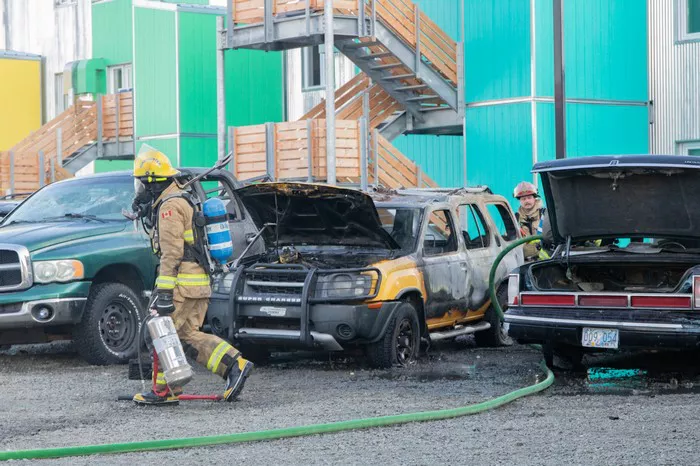Fire in Beirut’s Hamra District Causes Extensive Damage
A significant fire erupted early Saturday in Beirut’s Hamra district, reportedly sparked by an overloaded power generator and nearby diesel tanks, according to LBC International. The blaze resulted in substantial material damage, burning approximately 25 vehicles and impacting adjacent buildings.
The fire, which broke out near residential structures, underscores the ongoing issues surrounding generator safety in Beirut’s densely populated areas. The incident left minor injuries in its wake, with a foreign worker sustaining harm after jumping from an upper floor to escape the thick smoke. A Lebanese woman also suffered minor injuries and received treatment at a nearby hospital.
Concerns Over Generator Placement and Safety
This latest fire has reignited concerns regarding the placement of power generators near residential buildings in Beirut. The common practice of situating generators close to homes, often without adhering to basic safety standards, poses heightened risks of fire and property damage.
Sawsan Dahham, CEO of Sienna, highlighted the issue on LinkedIn, stating, “In Lebanon, where public electricity is unreliable, diesel generators serve as the main power source for homes and businesses. However, due to the absence of government-mandated fire safety regulations, these generators are often installed without proper planning, inspection, or maintenance. This lack of oversight poses severe risks to both public safety and property.”
Calls for Improved Fire Safety Standards
The absence of strict fire safety regulations has contributed to a rising number of generator-related incidents in Beirut. Despite the existence of specific guidelines provided by the National Fire Protection Association (NFPA) through codes such as NFPA37 and NFPA30—which cover aspects like generator placement, ventilation, automatic shutdowns, and fuel handling—these standards are not widely enforced in Lebanon.
“Such tragic events remind us of the crucial role that codes and standards play in safeguarding lives and properties,” Dahham remarked. “Implementing these standards is essential for creating a safer environment, reducing the frequency of preventable incidents like this one.”
Generators as a Persistent Safety Hazard in Lebanon
Lebanon’s reliance on diesel generators is rooted in its unstable public electricity supply, making generators the primary power source for homes and businesses. However, these generators are frequently installed without necessary inspections, planning, or routine maintenance, exacerbating fire hazards, especially in densely populated areas.
The lack of government oversight on generator usage and placement has allowed safety issues to proliferate, posing risks to residents and property values. The recent fire in Hamra serves as a stark reminder of the urgent need to address these safety concerns through regulatory measures.
Summary: Beirut Fire Highlights Urgency of Safety Regulations
A fire that broke out in Beirut’s Hamra district, reportedly due to an overloaded generator and adjacent diesel tanks, destroyed around 25 vehicles and damaged nearby buildings. The blaze has drawn attention to the widespread use of generators near residential areas and the lack of adequate safety protocols. While NFPA guidelines such as NFPA37 and NFPA30 offer a framework for safe generator use, enforcement in Lebanon remains minimal. Experts, including Sawsan Dahham, have called for stronger regulatory oversight to mitigate the risks associated with diesel generators and protect public safety.
Related topics:

